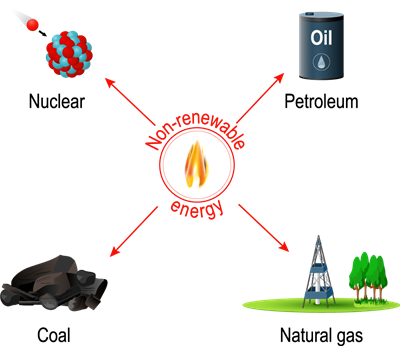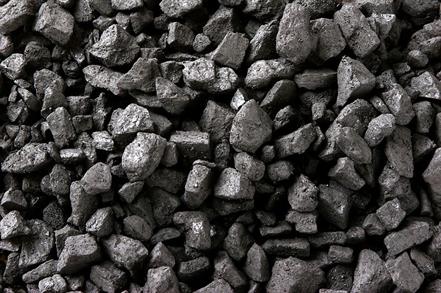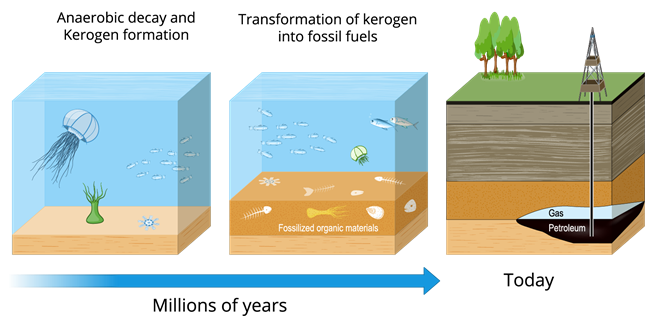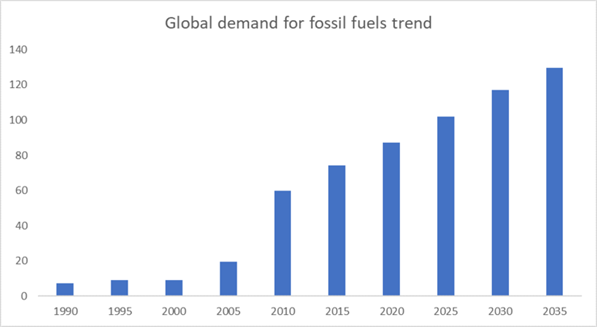PDF chapter test TRY NOW
What are fossil fuels?
Fossil fuels are found deep inside the earth's crust, which are energy-rich substances created over millions of years by natural processes such as the anaerobic decomposition of buried dead animals. The remains of the organisms are progressively converted into hydrocarbons, such as petroleum, coal, and natural gas, as the accumulating sediment layers produce heat and pressure.

Fossil fuels
Coal and petroleum:
Coal and petroleum are natural resources, termed fossil fuels, as they are formed from the degradation or decomposition of biomass buried deep beneath the earth millions of years ago.

Coal
Coal is used in thermal power plants to generate electricity. Petroleum, commonly known as crude oil, is processed into petrol and diesel in oil refineries.
Important!
After the United States and China, India is the third-largest consumer of crude oil in the world.!
Petroleum has been formed from plant and animal remains and is found in sedimentary rocks as mineral oil.

Formation of petroleum
Petrol and diesel are used to run automobiles, trucks, trains, ships, and aeroplanes, among other things. Domestic cooking fuels including kerosene and LPG (Liquefied Petroleum Gas) are derived from petroleum.
If we continue to use coal and petroleum at such a fast pace, they will be exhausted.

Global demands for fossil fuel
Coal and petroleum will be depleted or exhausted in the future, no matter how carefully we use them, as the creation of these fossil fuels is a very slow process, which takes a long time for its renewal.
Steps to conserve coal and petroleum resources:
Coal and petroleum resources must be conserved or saved for future use, which can be accomplished by limiting their usage. The following are the ways through which we can conserve coal and petroleum resources:
1. Saving electricity, in turn, reduces the usage of coal.
2. Using bicycles instead of cars, scooters, or motorbikes for short distances will reduce the use of coal.
3. Using a pressure cooker reduces the consumption of kerosene and LPG. Wherever possible, solar cookers and solar heaters can be used.
4. Automobiles must be designed with fuel-efficient engines to improve efficiency and to reduce air pollution.
Reference:
https://commons.wikimedia.org/wiki/File:CSIRO_ScienceImage_10945_Coal.jpg
